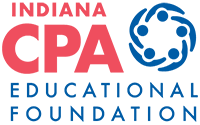
There are several ways to calculate your direct costs. To find out the cost to produce one unit of a product, you can multiply that number by the monthly production. The cost can also be calculated quarterly or annually. To calculate your direct costs you can compare labor and materials costs. This information can be used to determine the most cost-effective costs, regardless of whether they directly relate to a cost objective.
Variable costs
Variable costs for a business include the price of raw materials. These costs increase as the firm's activity and expenditure increases. These changes are not controlled by management. In a production setting, variable costs can include fuel, labor, perishable foods, utilities, and wages. Below are examples of some of the most common variable costs. They can impact the bottom line of any company, regardless of where they originated.
The difference between variable and fixed costs is that the former is directly related to the product being produced. However, indirect costs are not directly related to the product or service. Indirect costs, however, are less predictable than direct costs. If they are part of long-term contracts, indirect costs like advertising can be difficult and expensive to track. They can also vary based on the production volume. It is possible to better plan your finances by knowing the difference between direct or indirect costs.
Fixed costs
Fixed costs are items whose prices remain fixed regardless of the level or production. This type of cost can also be referred to directly as costs. These items do not depend on the quantity but are based on their source. Although the salary of a supervisor could be directly attributable to a project's success, it is not an exact dollar amount. Other items, such materials used in manufacturing a product might have variable amounts but they can be directly traced to it.
One important difference between variable and fixed costs is their duration. Variable costs fluctuate from month one to the next. Variable costs can cut into profit margins and result in whirlwind profits or steep losses. Fixed costs, by contrast, are not affected by changes in output. Additionally, fixed costs are often tied to time, so they are less sensitive to changes in output.
Overall operations costs

It is crucial to understand costs related to overall operations in order for a business to be viable. Businesses will lose profitability if their operating expenses go up. Controlling these costs can help a business increase its profitability and improve their financial health. Operating costs include items that are not directly connected to making or delivering products or services, such as rent and utilities, salaries, office supplies, travel expenses, and salary. Other items that fall within the operating category are depreciation and property taxes.
Fixed assets are the most frequent expenses associated with overall operations. These include computer and office equipment, storage and delivery vehicles, display and advertising materials, and computers. Fixed assets depreciate in value over time. Marketing expenses include brochures, business cards, and television ads. Property taxes, which vary based on the assessed value of a building, are another major expense. Transportation and delivery are also costs associated with inventory.
Costs that can be attributed to a particular cost objective
In economics and accounting, direct costs are expenses directly attributable to a cost object. Some costs can be traced back in specific units and processes. Indirect costs are those that are incurred to support overall operations. Managers will be able to make better decisions regarding how they use money and resources if they understand the difference between indirect and direct. Below are some examples.

Direct costs are the first type. The first type of cost is direct. Direct costs can easily be traced back to a particular cost objective. Examples of direct costs include construction materials, labor, equipment, and all efforts directly involved in the construction process. Non-construction costs are a portion the operating expenses directly attributable a product or process. Also included are salaries and materials that are required to complete the project.
FAQ
What should I expect from an accountant when I hire them?
Ask questions about their experience, qualifications, references, and other relevant information when hiring an accountant.
You need someone who has done it before and is familiar with the process.
Ask them about any skills or knowledge they may have that could be of assistance to you.
Make sure they have a good reputation in the community.
How can I find out if my business needs an accountant
When a company reaches a certain size, accountants are often hired. For example, a company needs one when it has $10 million in annual sales or more.
However, some companies hire accountants regardless of their size. These include sole proprietorships or partnerships, small firms, corporations, and large companies.
The size of a company doesn't count. It doesn't matter how big a company is.
If it does, the company will need an accountant. And it won't.
Why is reconciliation so important?
This is important as you never know when errors might occur. Mistakes include incorrect entries, missing entries, duplicate entries, etc.
These problems can have grave consequences, including incorrect financial statements or missed deadlines, overspending and bankruptcy.
What kind of training is necessary to become a bookkeeper?
Basic math skills are required for bookkeepers. These include addition, subtraction and multiplication, divisions, fractions, percentages and simple algebra.
They will also need to be able use a computer.
Most bookkeepers have a high school diploma. Some have college degrees.
What does an auditor do?
Auditors look for inconsistencies between financial statements and actual events.
He validates the accuracy of figures provided by companies.
He also checks the validity of financial statements.
What does an accountant do, and why is it so important?
An accountant keeps track all the money that you earn and spend. They track how much you pay in taxes and what deductions you are allowed to make.
An accountant will help you manage your finances, keeping track of both your incomes as well as your expenses.
They can prepare financial reports both for individuals and companies.
Accountants are essential because they need to understand everything about numbers.
Additionally, accountants assist with tax filing and make sure that taxpayers pay the least amount of tax.
Statistics
- The U.S. Bureau of Labor Statistics (BLS) projects an additional 96,000 positions for accountants and auditors between 2020 and 2030, representing job growth of 7%. (onlinemasters.ohio.edu)
- In fact, a TD Bank survey polled over 500 U.S. small business owners discovered that bookkeeping is their most hated, with the next most hated task falling a whopping 24% behind. (kpmgspark.com)
- "Durham Technical Community College reported that the most difficult part of their job was not maintaining financial records, which accounted for 50 percent of their time. (kpmgspark.com)
- According to the BLS, accounting and auditing professionals reported a 2020 median annual salary of $73,560, which is nearly double that of the national average earnings for all workers.1 (rasmussen.edu)
- a little over 40% of accountants have earned a bachelor's degree. (yourfreecareertest.com)
External Links
How To
How to do Bookkeeping
There are many options for accounting software today. There are many types of accounting software available today. Some are free while others cost money. However, they all offer basic features like invoicing and billing, inventory management as well as payroll processing, point of sale systems and financial reporting. Below is a short description of some common accounting packages.
Free Accounting Software: This software is typically free for personal use. Although the program is limited in functionality (e.g. it cannot be used to create your reports), it can often be very easy for anyone to use. Many programs are free and allow you to save data to Excel spreadsheets. This is useful if you need to analyze your own business numbers.
Paid Accounting Software (PAS): Paid accounts for businesses with multiple workers. These accounts provide powerful tools for managing employee records and tracking sales and expenses. They also allow you to generate reports and automate processes. While most paid programs require a subscription fee for at least one-year, many companies offer subscriptions that last just six months.
Cloud Accounting Software: Cloud accounting software allows you to access your files anywhere online, using mobile devices such as smartphones and tablets. This type of program has become increasingly popular because it saves you space on your computer hard drive, reduces clutter, and makes working remotely much easier. There is no need to install any additional software. All you need to access cloud storage is an Internet connection.
Desktop Accounting Software: Desktop software works in a similar way to cloud accounting software. However, it runs locally on your own computer. Desktop software can be accessed from any device, including mobile devices, and works similarly to cloud software. However, unlike cloud-based software, desktop software must be installed on your computer before it can be used.
Mobile Accounting Software is designed to run on smaller devices, such as tablets and smartphones. These programs make it easy to manage your finances wherever you are. These programs are typically less functional than full-fledged desktop software, but they can still be useful for people who travel frequently or need to run errands.
Online Accounting Software is specifically designed for small businesses. It contains all the functions of a traditional desktop application, as well as some additional features. The best thing about online software is the fact that it does not require installation. You simply log in to the site to start the program. Online software also offers the opportunity to save money as you can avoid local office fees.